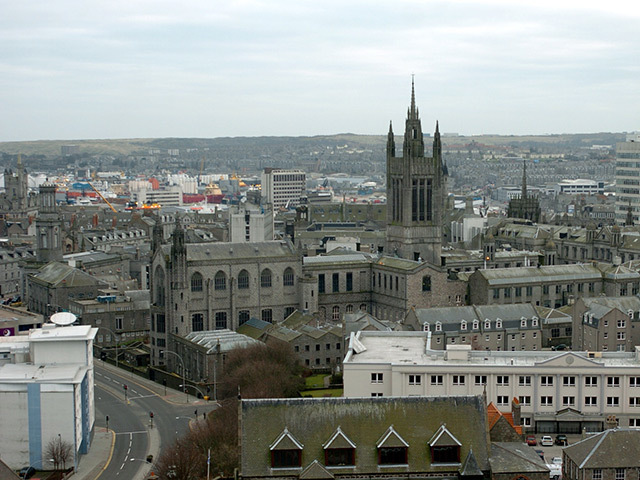
Prime Minister David Cameron and First Minister Nicola Sturgeon were last night urged to attend an emergency oil and gas “summit” in Aberdeen and help save jobs as the North Sea industry struggles with low crude prices.
The meeting has been called by Aberdeen City Council in response to a plunge in oil prices to just above $62 a barrel, from more than $100 in the summer. Scottish Labour pledged to send its leader, Jim Murphy, and urged both Mr Cameron and Ms Sturgeon to attend.
But trade body Oil and Gas UK (OGUK) said there was no need for a knee-jerk reaction to the low oil prices, adding it was probably enough to “reflect” on them after Christmas.
Council leader Jenny Laing said: “I have today instructed Angela Scott, our chief executive, to arrange a summit between senior politicians, government officials, industry representatives, trade unions, and local politicians.
“It’s the right thing to do for the city of Aberdeen.
“We have a responsibility as the leading local authority because there are so many jobs dependent on the oil and gas industry, and this is about trying to get a bit of stability within the industry.
“There’s things that a local authority cannot control such as tax, so it’s important that all three layers of the UK, Scottish and indeed local government are all working towards the same aims.
“We’ve asked Nicola Sturgeon to come up, and we’re writing to David Cameron to ask him to come up, and attend the summit.
“Upon reflection, they might say that the best person to deal with this would be their energy ministers, but at the end of the day if the UK and Scottish governments are serious about oil and gas then I think we need the most senior politicians up here for a summit in Aberdeen.”
She added: “Aberdeen is a global city that has achieved so much success, thanks to the oil and gas industry being on our doorstep. We are the energy capital of Europe and in order to sustain our position and compete against other global cities we must have a strategy.”
Ms Scott is writing to the Scottish and UK governments, industry leaders, unions and Aberdeenshire Council about the meeting and the need to “find a strategic solution to ensure Aberdeen retains its position as the energy capital of Europe”.
Scottish Labour energy spokesman Lewis Macdonald said: “Scottish Labour welcomes this call for a summit on the best way to support Scotland’s oil industry during this time of profound unrest.
“Both Jim Murphy and I look forward to working constructively with all stakeholders to find a solution that supports the thousands of jobs at risk here in the north-east. I can only hope Nicola Sturgeon and David Cameron answer the call in the same constructive spirit, and come to Aberdeen to look for solutions to support Scotland’s oil industry.”
A Scottish Government spokesman said the SNP administration at Holyrood was “continuing to do all that it can to support Scotland’s oil and gas sector”. He added: “This includes supporting innovation with a £10million investment in the Oil and Gas Innovation Council, through skills investment with Energy Skills Scotland and company support provided by Scottish Enterprise and HIE (Highlands and Islands Enterprise) which has seen international activity of Scottish supply chain companies grow to £10billion in 2012-13, an increase of 22% on the previous year.
“As we have long said, what the industry requires is a stable predictable fiscal regime, and that substantial tax incentives are needed to achieve the objective of maximising recovery.”
OGUK economics director, Mike Tholen, said oil and gas firms were “doing lots” to find cheaper ways of working, while the industry was also involved in work aimed at reducing the tax burden. He added: “If there is to be a summit, it should not be this side of the new year. People need to take stock of what is going on. It may be that this is something we need to reflect on over Christmas.”
Union boss Jake Molloy, regional organiser of the RMT, said Energy Minister Fergus Ewing had pledged to discuss initiatives to save jobs. “We have flagged up the idea of innovative tax relief incentives for employers and operators entering into initiatives such as flexible working and job sharing systems,” he said.
“We have also pointed out this isn’t just about jobs. It is about sustaining production, a revenue stream and supply, and also the ability to exploit our natural resources and maintain and retain the infrastructure and people to deliver it.”
Recommended for you
